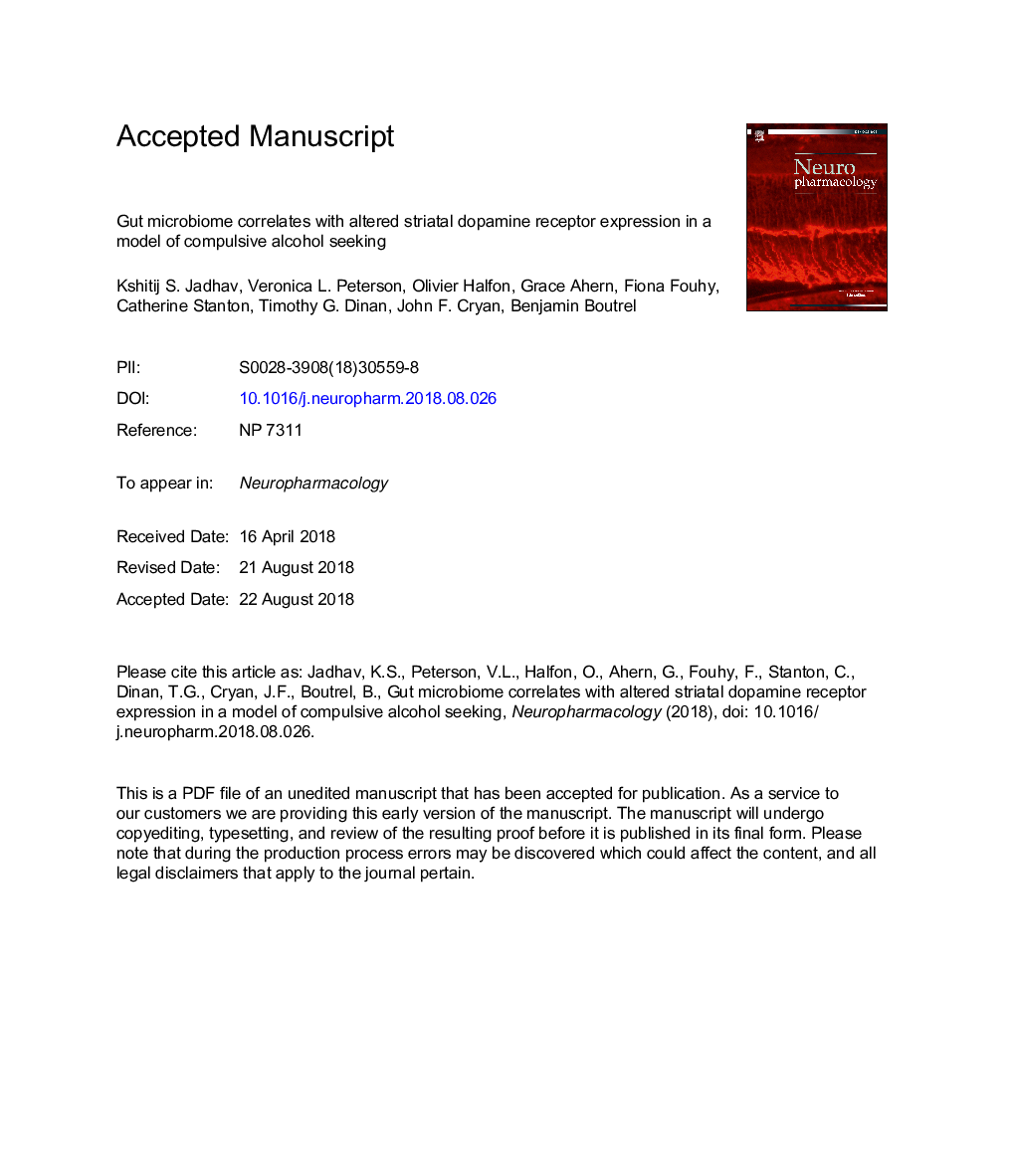| کد مقاله | کد نشریه | سال انتشار | مقاله انگلیسی | نسخه تمام متن |
|---|---|---|---|---|
| 10137425 | 1645757 | 2018 | 39 صفحه PDF | دانلود رایگان |
عنوان انگلیسی مقاله ISI
Gut microbiome correlates with altered striatal dopamine receptor expression in a model of compulsive alcohol seeking
ترجمه فارسی عنوان
میکروبیوم گلو ارتباطی با بیان گیرنده دپامین تغییر یافته در مدل الگوبرداری الکل دارد
دانلود مقاله + سفارش ترجمه
دانلود مقاله ISI انگلیسی
رایگان برای ایرانیان
کلمات کلیدی
اعتیاد به الکل، میکروبیوم، محور روده مغز، اختلال مصرف الکل، تکانشی،
موضوعات مرتبط
علوم زیستی و بیوفناوری
علم عصب شناسی
علوم اعصاب رفتاری
چکیده انگلیسی
Identifying biological markers predicting vulnerability to develop excessive alcohol consumption may lead to a real improvement of clinical care. With converging evidence suggesting that gut microbiome is capable of influencing brain and behavior, this study aimed at investigating whether changes in gut microbiome composition is associated with conditioned responses to alcohol. We trained Wistar rats to self-administer alcohol for a prolonged period before screening those exhibiting uncontrolled alcohol seeking and taking by modeling diagnostic criteria for AUD: inability to abstain during a signaled period of reward unavailability, increased motivation assessed in a progressive effortful task and persistent alcohol intake despite aversive foot shocks. Based on addiction criteria scores, rats were assigned to either Vulnerable or Resilient groups. Vulnerable rats not only displayed increased impulsive and compulsive behaviors, but also displayed increased relapse after abstinence and increased sensitivity to baclofen treatments compared to resilient animals. Then, rats underwent a 3-month wash out period before sacrifice. Dorsal striatum was collected to assess dopamine receptor mRNA expression, and 16S microbiome sequencing was performed on caecal contents. Multiple significant correlations were found between gut microbiome and impulsivity measures, as well as augmentations in striatal Dopamine 1 receptor (D1R) and reductions in D2R as vulnerability to AUD increased. Therefore, using a singular translational approach based on biobehavioral dispositions to excessive alcohol seeking without heavy intoxication, our observations suggests an association between gut microbiome composition and these specific “at risk” behavioral traits observed in our translationally relevant model.
ناشر
Database: Elsevier - ScienceDirect (ساینس دایرکت)
Journal: Neuropharmacology - Volume 141, October 2018, Pages 249-259
Journal: Neuropharmacology - Volume 141, October 2018, Pages 249-259
نویسندگان
Kshitij S. Jadhav, Veronica L. Peterson, Olivier Halfon, Grace Ahern, Fiona Fouhy, Catherine Stanton, Timothy G. Dinan, John F. Cryan, Benjamin Boutrel,
